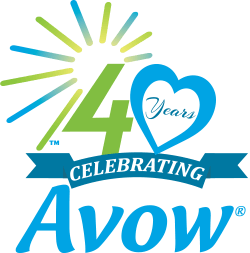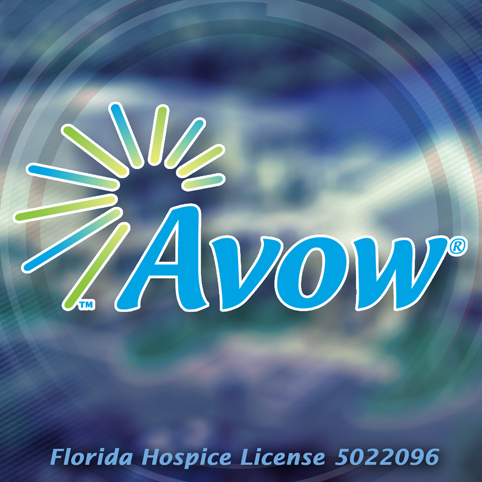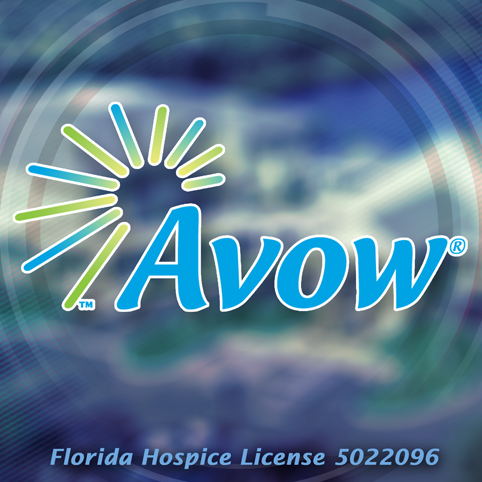August Is National Make-A-Will MonthIs It Time to Create or Update Your Will?
Avow Hospice
For more information about the author, click to view their website: Avow Hospice
Aug 09, 2023
Florida - Southwest
Email US
Click to Email UsDid you know that 56% of Americans either do not have an estate plan or have one that needs to be updated to meet their current circumstances? This is an interesting statistic given that surveys show more than 75% of Americans believe it is important to have a competent estate plan.
Each year, August is designated as “National Make-A-Will Month.” The purpose of this promotion is to encourage all Americans to have a will that adequately and accurately distributes their assets following their death to their loved ones and favorite charitable organizations.
Taking the initial steps to create a will is difficult for many people even though they know the importance of having an up-to-date will. Here are some steps that you can take to get the momentum rolling no matter what category you are in.
“I do not have a will.” Without a will, your assets will be distributed according to the rules established by your state of residence. Those rules likely do not follow your wishes, and, in some cases, they may even be the opposite of what you desire. Nor does your state’s distribution plan include charitable gifts. To avoid these disastrous results, consider the following simple steps:
- Make a list of all your assets including real estate, investments, retirement accounts, life insurance policies, and personal property such as cars, jewelry, boats, collections, etc.
- Make a list of the individuals whom you would like to remember with a gift from your estate.
- Make a list of the charitable organizations that have impacted your life that you would like to remember with a gift from your estate.
You are well on your way—those three simple lists are the building blocks of every will! Your attorney will be grateful because this allows him or her to prepare your will quickly and efficiently.
“I have a very old will that needs to be updated.” An outdated will can be nearly as disastrous as having no will at all. It is highly likely that many of your circumstances have changed, some of which you could not even fathom when you created your original will. To make sure you have a will that accurately reflects your current wishes, update the three lists above and consider these additional steps:
- Review the beneficiary designations of your retirement plans and life insurance policies to make sure they are aligned with the rest of your will.
- If you have a donor-advised fund, make sure you have completed a beneficiary-designation form so that those assets go to the charities you wish to support.
- Make sure your executor is still capable of handling that task. Name a contingent executor should your original executor not be able to fulfill those duties.
“My will is up to date!” It is easy to be smug if you have an updated will. However, it is important to continually monitor your circumstances so that your currently accurate will does not quickly become outdated. For example, if you have children, what changes should you make when one or more of them are married, have children of their own, get divorced, or become incapacitated? And how quickly should you make those changes? Another example is when your favorite charity launches a new program that you think will set the course for its future. Should you modify your bequest to the charity to take that into account?
We would be happy to assist you in exploring your options in a no-obligation discussion. Just contact our office via email or phone to meet with one of our gift planning experts.
- To view the original version of this article visit avowcares.giftplans.org/index.php?cID=66&article=215
- Seniors Blue Book was not involved in the creation of this content.
Other Articles You May Like
Estate Plan Check-Ups
Estate Plan Check-UpsEffective estate planning is personal, and its more than just deciding who to leave your assets to once you die. Effective estate planning is a comprehensive process that encompasses pre-need planning: health care decisions, financial management, and maintaining a delicate balance between independence and security. Like your preventive doctor visits, you should regularly check in on your estate plan to ensure it fits your current needs, considers and plans for potential future care needs, and will give effect to your wishes now and in the future. Generally, estate planning involves creating a last will and testament, possibly a revocable trust, possibly an asset protection trust or a supplemental needs trust for a loved one who is unable to manage finances or may be vulnerable to abuse or exploitation. Estate planning also involves important advanced directives, such as a durable financial power of attorney, a health care power of attorney, and a living will. Creating an estate plan, or getting my affairs in order, tends to be an item on our to-do lists, for us to get done and move on to the next thing. However, while it may not be something you have to look at every month, or even every year, once your initial estate plan is completed, it is something that needs to be reviewed with some regularity.Most people get an annual physical when they are healthy, not when they are sick. They do this because they want to proactively spot any issues that could cause them to become ill in the future. The same concept can and should be applied when it comes to reviewing and updating your estate plan. Your estate plan may be healthy now, but you want to make sure that it stays that way by checking it regularly, to ensure it fits your needs and family circumstances, protects and provides for you now, and accomplishes your goals and wishes in the future. Editors Note: This article is for informational purposes only and is not intended to be legal advice. This article was submitted by Ashley Day, Esq. Ashley Day Law, LLC. Reach her at 251-277-3377.
Paperwork...Paperwork...What Should I Keep?
PaperworkPaperworkWhat Should I keep? Sorting through the paperwork of a deceased loved one is a daunting task. It is important to know what to keep and what to discard. Here are some helpful tips. Deeds, Titles and Vehicle RegistrationsDeeds and titles to property may not be obvious on the face of the document so it is important to read everything carefully. Keep anything that has a legal description (Lots and Blocks or Metes and Bounds), a vehicle identification number (VIN), contains the word title, deed of trust or warranty deed. ReceiptsSome property does not have a title such as a tractor, farm equipment or certain recreational equipment. In such cases, keep the purchase receipts for this type of property. It will be useful if there is a question about ownership, the value of the property or the date it was purchased. Bank RecordsSave all bank records and statements. These will be valuable if a dispute arises about ownership of an account, payments or distributions made from the account and to whom. Shred unused checks. Retirement AccountsSave all statements and records pertaining to the decedents individual retirement accounts (IRAs), 401(k) plans or pension plans. Life Insurance PoliciesSave all life insurance policies. Social Security Paperwork and Earning StatementsSave information about the decedents Social Security account or earning statements. Cancel the Decedents Credit Card Accounts Nowadays, identity theft is a huge issue. Contact Experian, Equifax and TransUnion to report the death of your loved one. Request the credit report be flagged as Deceased. Being proactive prevents a lot of hassle later on. Cancel all credit cards in the deceased persons name. Also, there may be questions about the credit card purchase of certain items or property. Save credit card statements until probate of the decedents estate is complete. Documents that contain the decedents Social Security NumberIf you find any documents with the decedents Social Security Number and you make a determination that the documents are not going to be saved, make sure it all gets shredded. Tax RecordsKeep the decedents tax records. There may be a question about real property valuation, exemption or other issues that can be resolved by information in a tax return. Loan PaperworkKeep all loan paperwork including loans on property or a loan the decedent made to a relative, friend, individual or organization. This may show that there is outstanding debt or money owed to the decedents estate. Business AgreementsSometimes people have business agreements that have been documented in writing. Such agreements may contain a succession plan, what should happen with business equipment or property, or what should happen upon the death of a business partner. Military RecordsSave all military records just in case there are benefits owed to a survivor such as a spouse, dependent child or disabled child. Some benefits are dependent upon verification of military service during war time which occurred prior to the advent of computer records. This includes photographs taken during wartime. Birth and Marriage CertificatesSave all birth and marriage certificates. Again, for certain benefits for survivors, such certificates may be needed. Timeframe for Keeping PaperworkIt is advisable to keep these potentially important documents until the estate of the decedent is settled, at a minimum. Otherwise keep them at least seven years and longer if possible, especially if real estate is involved. Contact Your AttorneyYour attorney will ask you pertinent questions and give you advice about what records to keep. You should also review your own estate plan documents to make sure they are up to date and reflect your current wishes. This article was written by Donna A. Schuyler, Attorney, who practices in the areas of estate planning, elder law, guardianship, and probate. Donna Schuyler Law, PLLC; elderlawboise.com. Phone 208-344-1947
A Will or a Trust- Which One Is Bet For You?
A Will or Trust: Which is Best for You?When it comes to deciding whether a will or trust is best for you, it is important to understand your options and which one is most appropriate for your situation.WillA testamentary will (simply referred to as a will) is a legal document used to transfer an estate to beneficiaries after the death of the testator (a male person making the will) or testatrix (a female person making the will). Within the will, the testator or testatrix usually names a personal representative (same as an executor) for the estate. For a will to be valid in Idaho, it must meet specific requirements under Idaho law. Revocable Living TrustsA person, during his or her lifetime, may create a revocable living trust whereby the grantor (the person making the trust), trustee (the person who has legal authority to manage the trust assets) and beneficiary (the person who makes use of the trust assets) are all the same person. After the grantor dies, depending on the trust instructions, the trust assets may be distributed outright or held within the trust and distributed over time or upon the happening of a designated event. Revocable living trusts may be appropriate for persons who own real property in more than one state or have a blended family where spouses have children from prior relationships.Testamentary Trusts A testamentary trust is a trust within a will. A testamentary trust is created upon the death of a person as specified in his or her will. The testamentary trust holds assets within the trust instead of outright distribution to a beneficiary. A common scenario is when parents create a testamentary trust to hold assets for the support of minor children or for college education for children until they reach a specified age. A testamentary trust can also hold assets for the special needs of a disabled child who receives government benefits. Does Having a Revocable Living Trust Eliminate Probate?To avoid the probate process, all assets must be transferred into the name of the revocable living trust. A common misconception is that a list of assets attached to the trust document accomplishes a transfer to the trust. However, the correct way to transfer assets requires an actual change to the title of assets including a home, certificate of deposits, bank accounts and brokerage accounts. Upon death, any assets titled in the name of an individual, not the trust, will be subject to the probate process. For this reason, when a person creates a revocable living trust, it is best to also create a will, called a pour-over-will, as a safety net to assure that upon death any assets titled in the name of an individual are transferred to the trust and distributed accordingly. In Idaho, generally speaking, the probate process can be quite simple and relatively inexpensive.A New or Updated Estate PlanWhether a will or trust is appropriate for you depends on your circumstances. If you already have a will or trust, it should be reviewed periodically to make sure it reflects your current wishes and needs or upon any significant change in your life such as divorce or death of a spouse or beneficiary. Other important estate planning documents include a general durable power of attorney, living will and durable power of attorney for health care. This article was written by Donna A. Schuyler, Attorney, who practices in the areas of estate planning, probate, trust administration, elder law, and guardianship. Donna Schuyler Law, PLLC; www.elderlawboise.com; Phone 208-344-1947
Local Services By This Author
Avow Hospice
Hospice 1095 Whippoorwill Ln., Naples, Florida, 34105Collier County's original and only non-profit hospice provider since 1983. Also offering non-hospice palliative care, grief and bereavement support in Collier and South Lee County. We create peace of mind by providing compassionate care and support to those who need us.
Avow Hospice
Hospice 1095 Whippoorwill Ln., Naples, Florida, 34105Collier County's original and only non-profit hospice provider since 1983. Also offering non-hospice palliative care, grief and bereavement support in Collier and South Lee County. We create peace of mind by providing compassionate care and support to those who need us.


